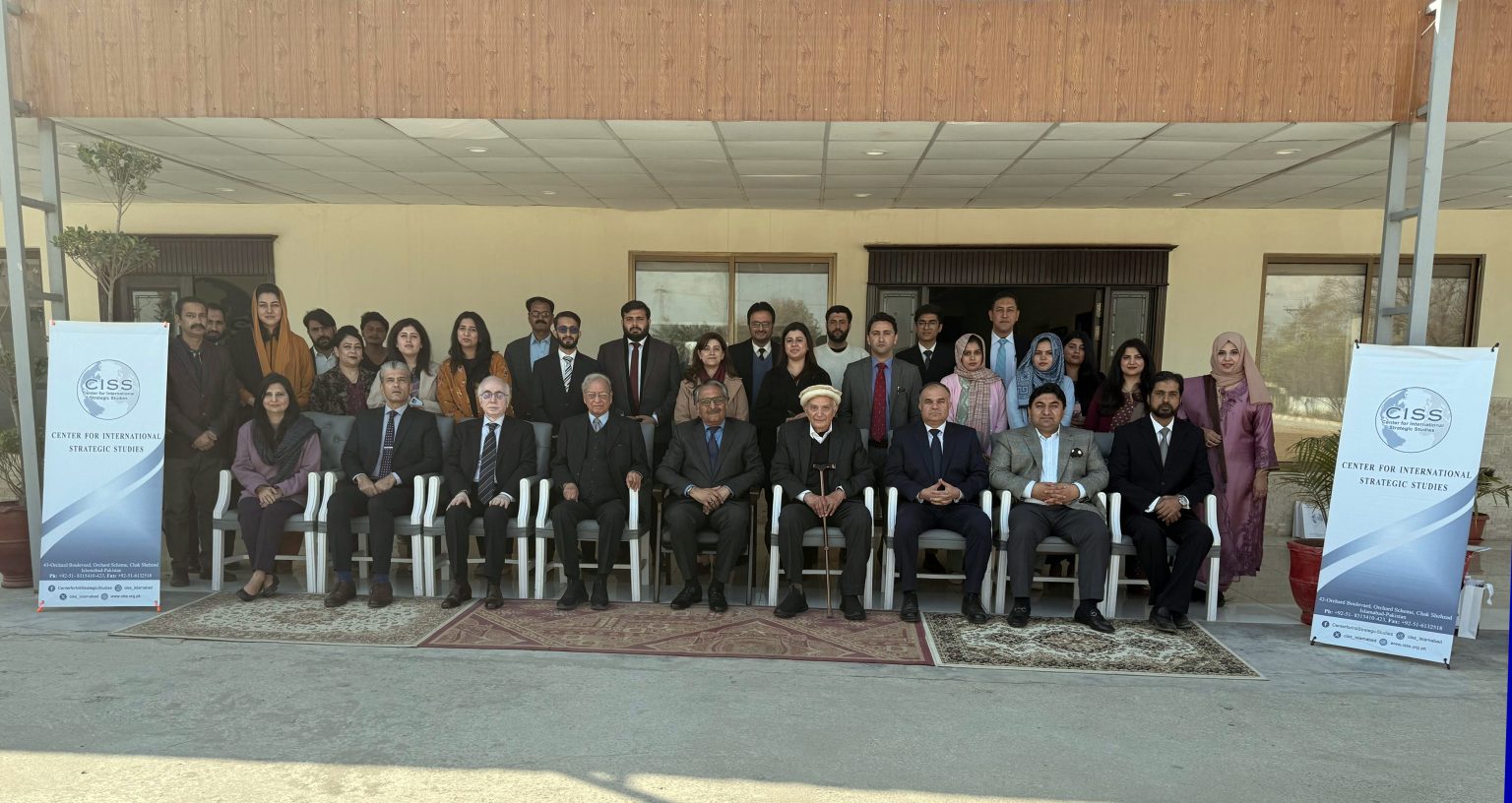Press Release
Experts urged to proactively engage the new US administration, despite narrowing space for Islamabad in Washington’s strategic calculus
Participants of a roundtable discussion on Wednesday assessed the prospects of Pakistan-US bilateral relations under the new Trump administration and explored new avenues of convergences between the two states.
The event, titled ‘Trump 2.0: Implications for Pakistan’ was organized by the Center for International Strategic Studies (CISS) in Islamabad and was attended by former envoys, academics, and researchers.
The speakers included Ambassador Jalil Abbas Jilani, Pakistan’s former foreign minister; Ambassador Ashraf Jehangir Qazi, Pakistan’s former ambassador to the US, India and China; Ambassador Masood Khalid, Pakistan’s former ambassador to China, and Dr Qamar Cheema, executive director Sanober Institute.
The participants highlighted that growing strategic convergences between India and the US and the simultaneous intensification of rivalry between China and US were limiting Pakistan’s foreign policy options, yet maintaining each other’s goodwill is a prerequisite for meaningful engagement in the future. They highlighted that the lack of shared strategic convergences between Washington and Islamabad hinders the transformation of this relationship into an enduring and substantial partnership.
Experts emphasized the importance of Pakistan’s strategic location, which makes it a key player in regional and global geopolitics. However, they noted, US engagement with Pakistan is expected to remain limited under the Trump’s new administration.
They regretted the fact that the US often shaped its approach toward Pakistan based on the dynamics of Pakistan’s relations with China and India, rather than recognizing Pakistan’s independent strategic value. They stressed that the US needs to understand that Pakistan maintains distinct and independent relationships with both the US and China, without any direct balance or overlap between the two, and each relationship is shaped by its own unique dynamics and strategic priorities.
Pakistan continues to face discriminatory sanctions despite maintaining exceptional nuclear security and safety standards. The panel concluded that India is strategically leveraging the imagined threat of China to its advantage and is securing access to the most advanced military equipment provided by the West. They blamed Washington’s policy of bolstering India as a bulwark against China, particularly in the Asia Pacific, through providing it a space in Quad and presenting New Delhi as a net security provider. India is also a signatory to foundational agreements such as COMCASA, LEMOA, and BECA further strengthening its strategic partnership with US.

